Drawing Links: Gut Feelings, Jewelry, Scenes From a Marriage
Plus a comic about the moon and phones

Hello, I’m Edith, formerly of The Cut and The Hairpin, and this is a newsletter with links, personal writing, illustration, and comics. It’s a work in progress — please let me know what you think. (Feel free to hit reply to this email!)
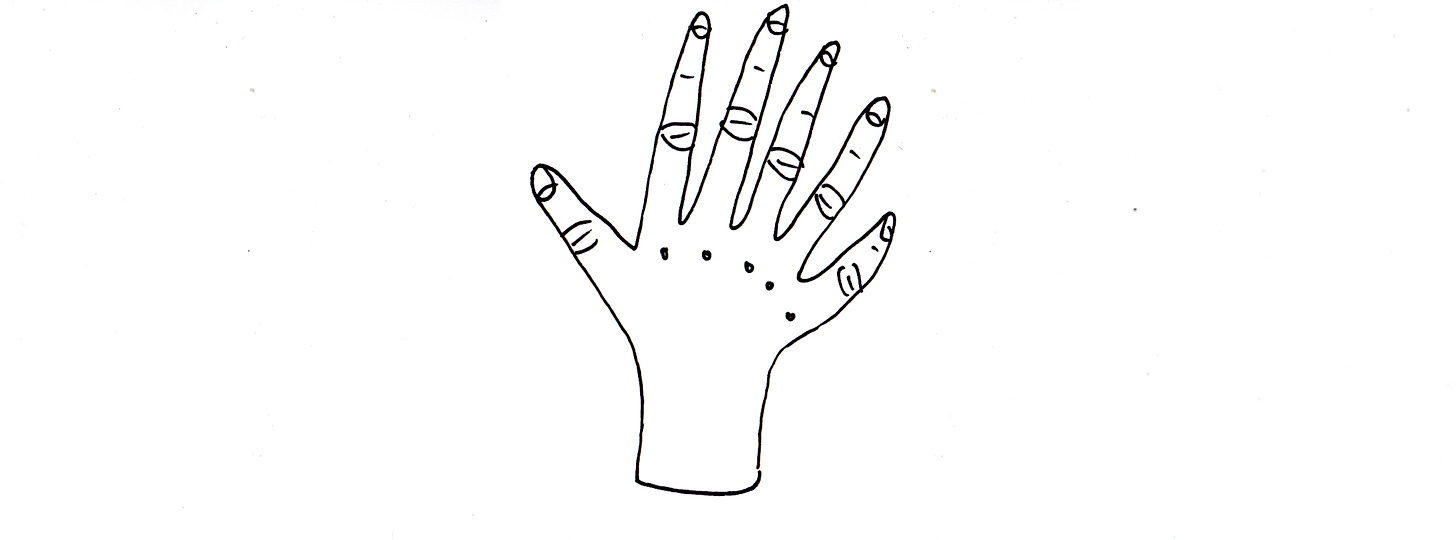
Let's first be clear on what I mean by “gut feelings.” So, a gut feeling — or an intuition — is based on years of experience. It usually appears quickly in your mind. So, you know what you might do, but you can't explain why. Nevertheless, [gut feelings] guide many of our personal and professional decisions. So, a gut feeling is not something arbitrary. It's not a sixth sense.
—Gerd Gigerenzer, author of the 2008 book Gut Feelings, on the podcast EconTalk.
Okay, this is maybe not the most compelling excerpt, but I wanted to share it because I like EconTalk, and for a while it was the only podcast I listened to. (It feels dad-like, and sometimes I just let it wash over me and understand nothing.) The gut-feelings episode, which basically got into the reasons for why gut feelings are good and useful, also reminded me of a section in the journalist Robert Wright’s book, Why Buddhism Is True (which I’ve written about multiple times — more times than I even remembered, actually). (Those are all Cut links.)
In the section I’m thinking of, Wright describes a brain experiment in which a participant demonstrates the human capacity for coming up with stories and rationales to explain behavior, even when it’s behavior that we already started doing, maybe without such a clear reason. The experiment is sort of complicated, and possibly not even applicable for most people, but the gist is that someone is apprehended while following what was essentially a subliminal order to go into the next room, and when they’re asked what they’re doing, the person immediately comes up with a reasonable-sounding rationale: I’m going into the other room to get a soda. In Wright’s words, a more truthful rationale might be: “I don’t know why I got up or where I’m going. Sometimes I just do things for reasons that make no sense to me.” I love this line. Since I’ve already written about it a number of times, though, maybe I should let it go after this. Robert Wright also has a newsletter, and I liked his recent installment about getting lost in the act of paying extremely close attention to things.
Also, Gerd Gigerenzer — the guest on the podcast episode — is a German psychologist, but he also plays banjo in a Dixieland band (as I just learned from Wikipedia), and the band was featured in this 1974 Volkswagen commercial. Gigerenzer is the one on the far right.
Oh, and the host of EconTalk, Russ Roberts, wrote a book I liked, which is how I got into the podcast in the first place. Earlier this year, I mentioned the book in a Cut story, and afterward Roberts started following me on Twitter, which made me so excited that I took a photograph of my computer. I was visiting a friend at the time, and I was like, “Russ Roberts followed me on Twitter!” but this friend was not a fan, and he made a point of saying something disparaging, and we engaged in a prolonged disagreement.
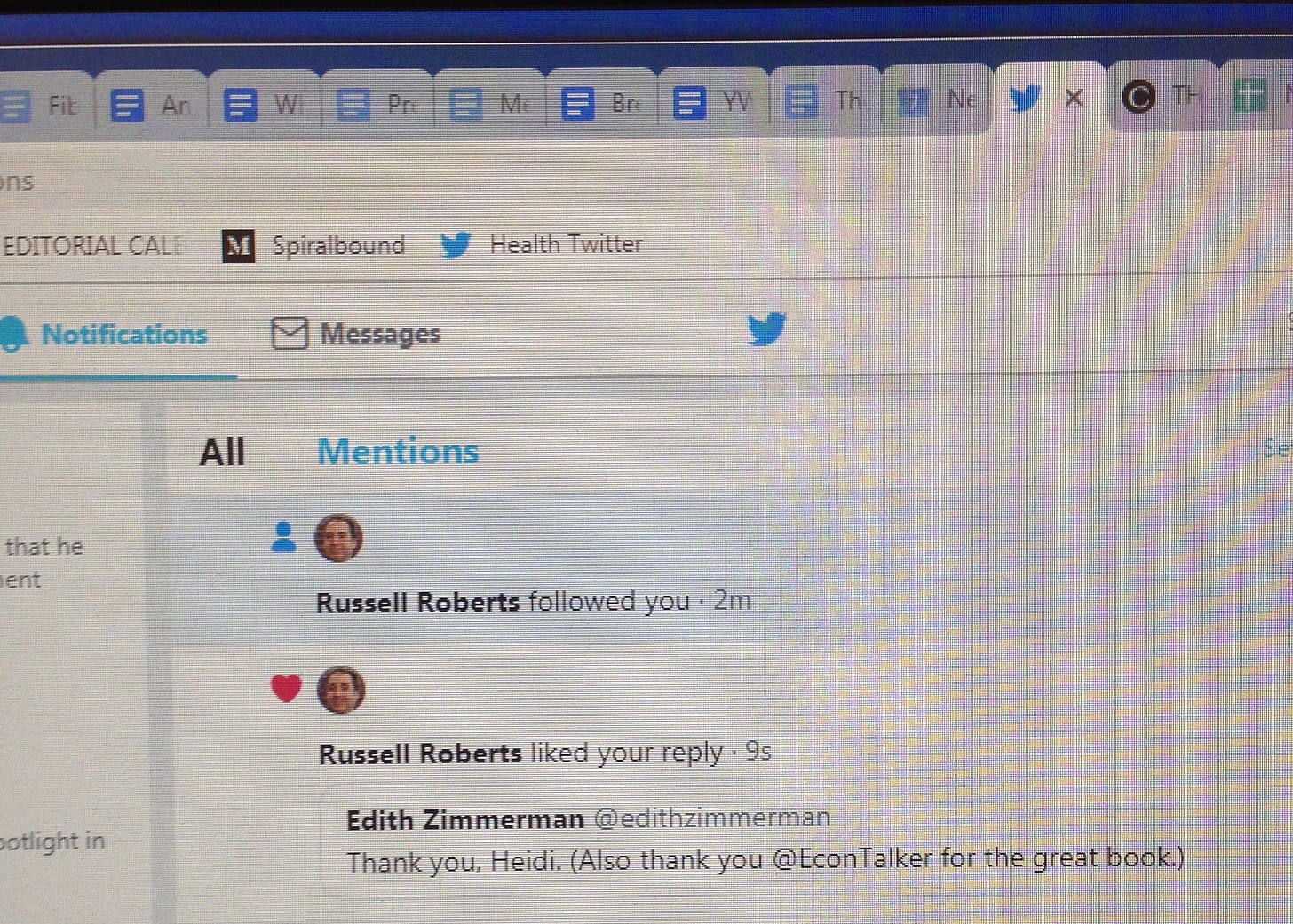
Anyway, sometimes we just do stuff, and then later we come up with explanations for why, and a story congeals, and a narrative congeals.

What broke my state? A few things, really. I passed 35 and wanted a baby. I fell in love and was mercilessly dumped. I took a new job, and in the new context, my toughness — my superpower — ceased to have its usual effect.
The Cut. A story about love from the wonderful Lisa Miller.
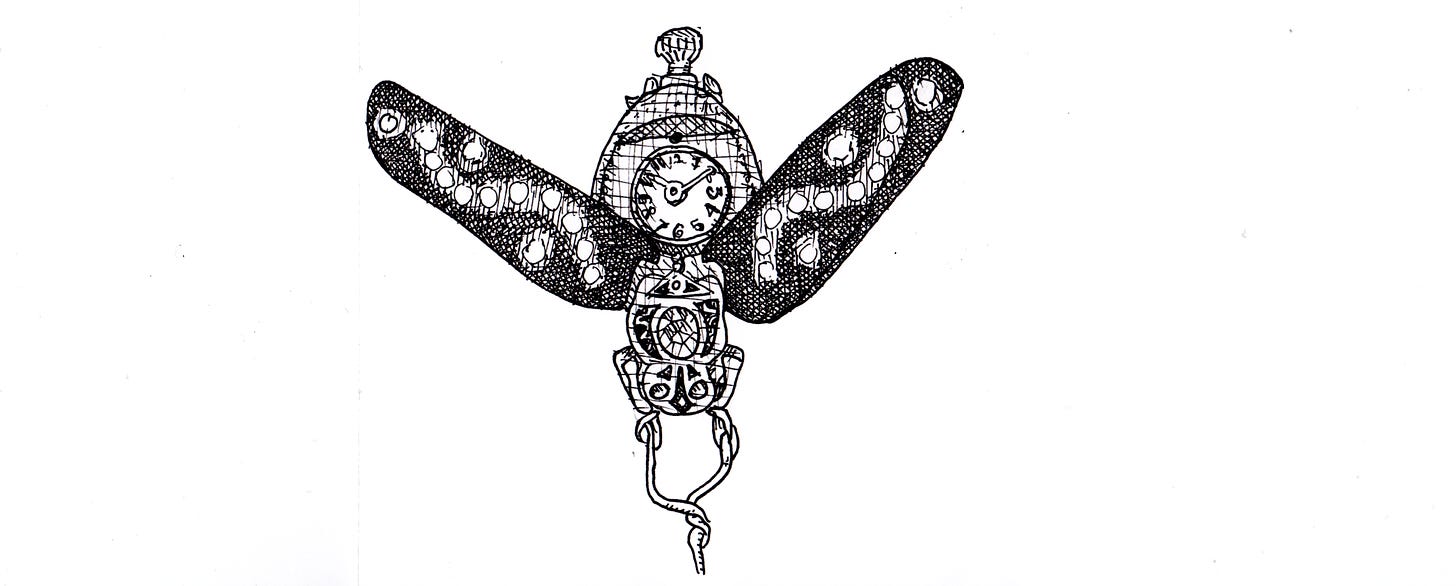
There’s very little info included in the description (aargh), but it looks like the wing mechanism opens when the pin at the base of the pendant is pulled down.
Dearest. Jewelry expert Monica McLaughlin is covering antique gems, brooches, bracelets, garter belts, and oil cans in a funny and beautiful new(ish) newsletter! Subscribe immediately!

There are two types of discomfort. There is the discomfort we feel when we’re in new and challenging situations, and then there is the discomfort we feel when we are stuck in old ones.
The difference is unmistakable.
Brianna Weist. I love this self-help writer on Medium. Is this true, though?

I wondered if there were other people for whom an unexpected stanza might alter the course of their hour, day, week.
Matthew Ogle, in 2015, on his newsletter Pome, which is great.
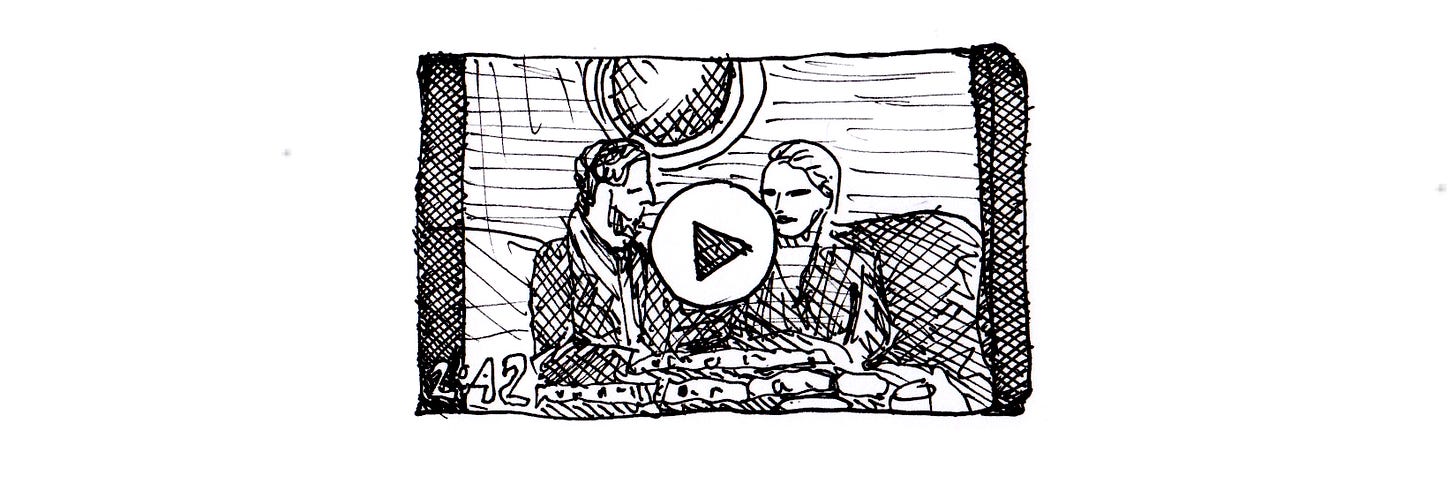
...Bergman’s Scenes from a Marriage (my favorite movie ever?)...
Marginal Revolution. This wasn’t a full sentence, but it got me to watch a clip from the 1973 Swedish movie/miniseries on YouTube, and now I’d like to watch the whole thing, which Roger Ebert called “one of the truest, most luminous love stories ever made.” If anyone reading this has seen it, please let me know, and I will find a way to include your thoughts/review in a future installment of this newsletter.

We don’t even notice it anymore — “link in bio.” It’s a pithy phrase, usually found on Instagram. ... Its presence is so subtle, and so pervasive, that we barely even noticed it was an attempt to kill the web.
Anil Dash. Also: “Here's the thing, though: people like links.” True!
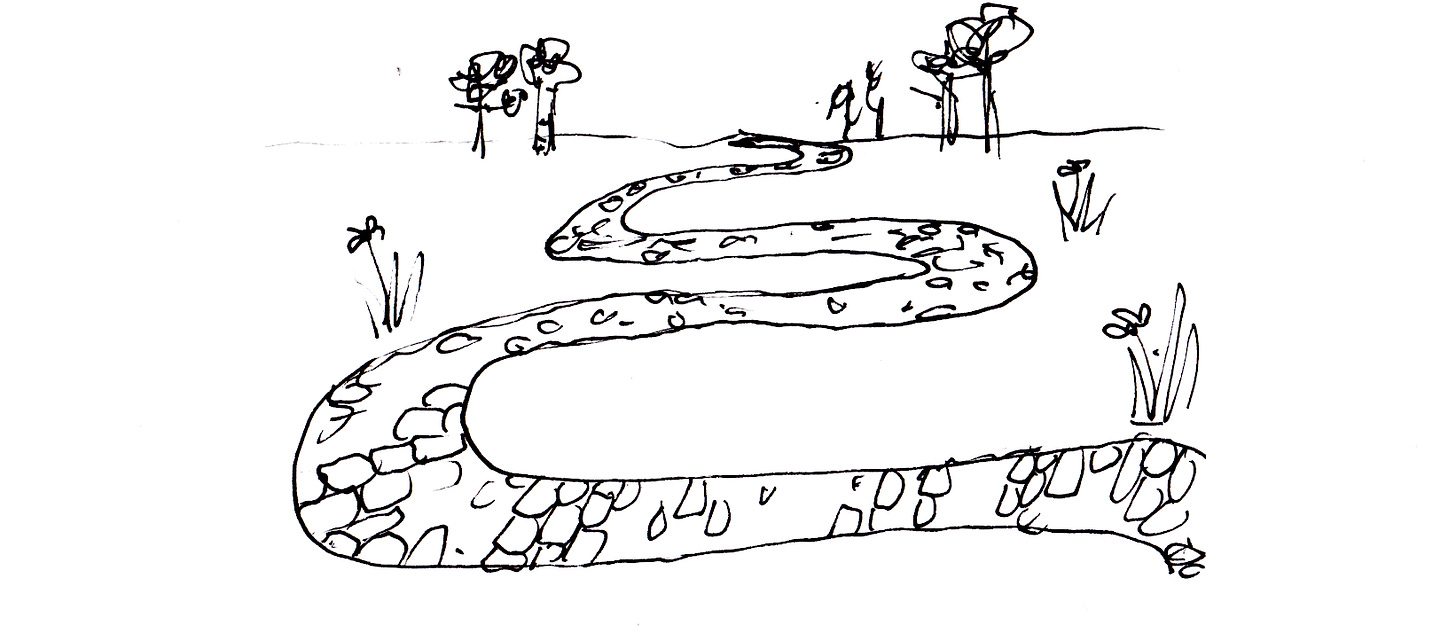
...if you’re not happy with the path you’re on, doing nothing and staying on that path will never make it better. If you look around your life and aren’t happy with some aspect of it, not changing anything will not make that aspect better.
Well, that’s a little vague, but I loved the sentiment, and as Guardian writer Oliver Burkeman once said, “sometimes the real challenge is ... to allow the possibility that [something] ... slightly embarrassing ... might nonetheless contain some real value.”
Sorry, I’m really chopping that up.
This past year I’ve been drawn to a lot of self-help stuff, and individually most of it is galvanizing for a few hours, and then normally I forget about it — even the stuff that feels galvanizing for a few days. But collectively I think these things can build up underneath you like pebbles, enough that after a while they can tip you into somewhere new. And I am grateful for that. Goofy-seeming self-help books can be a real comfort and a friend.




